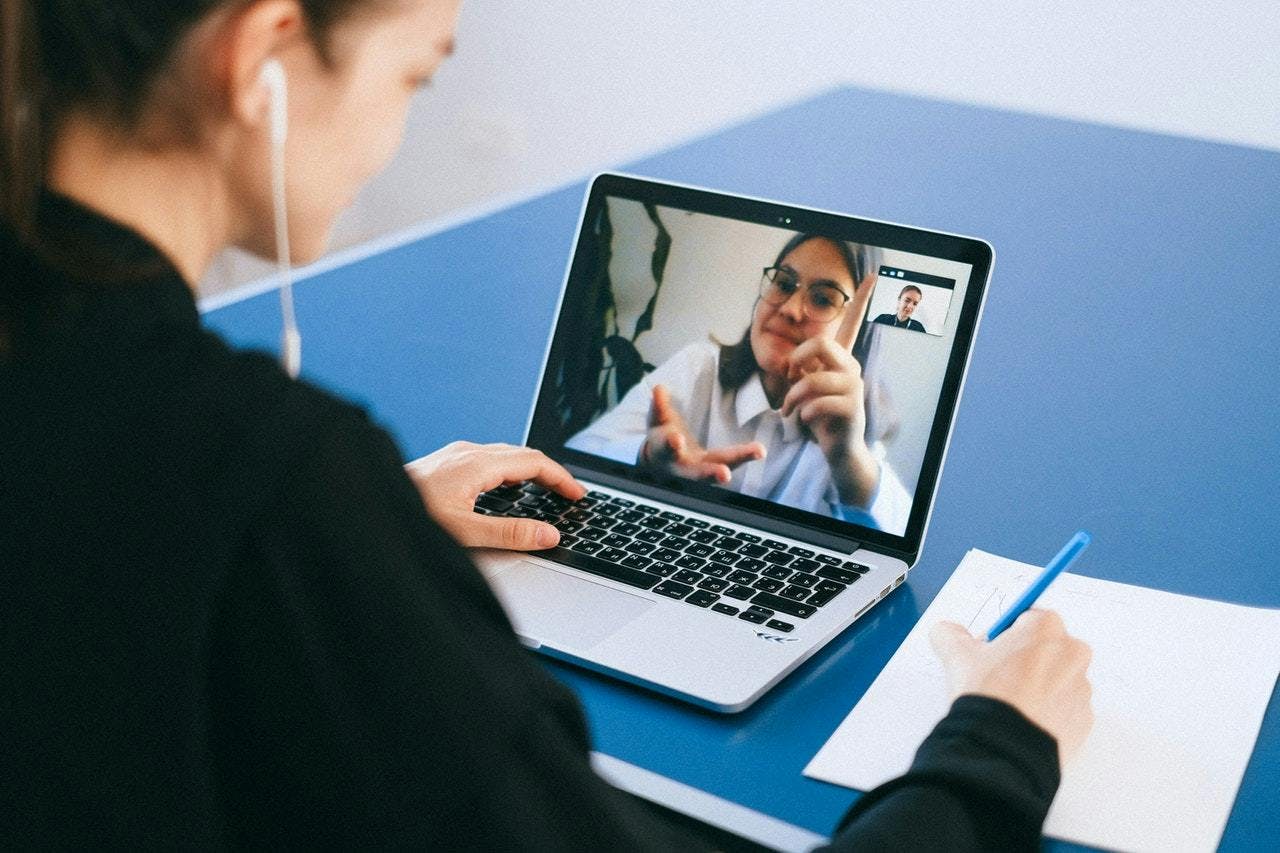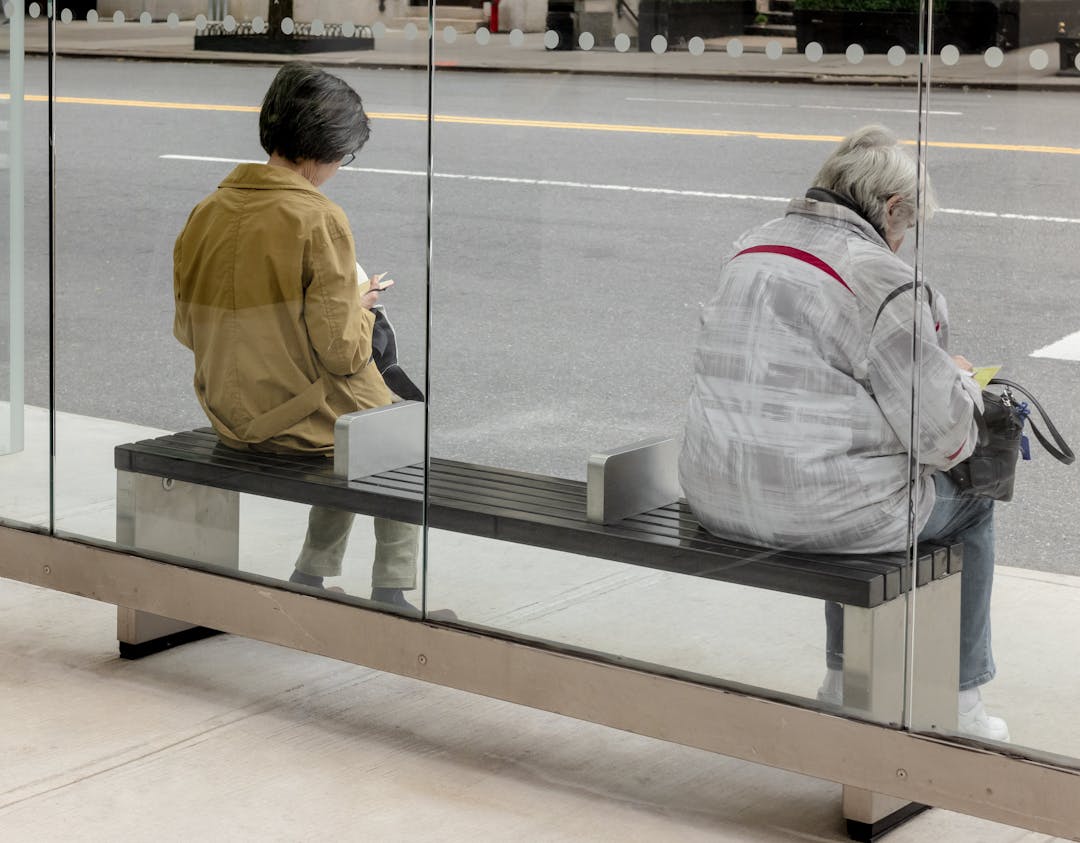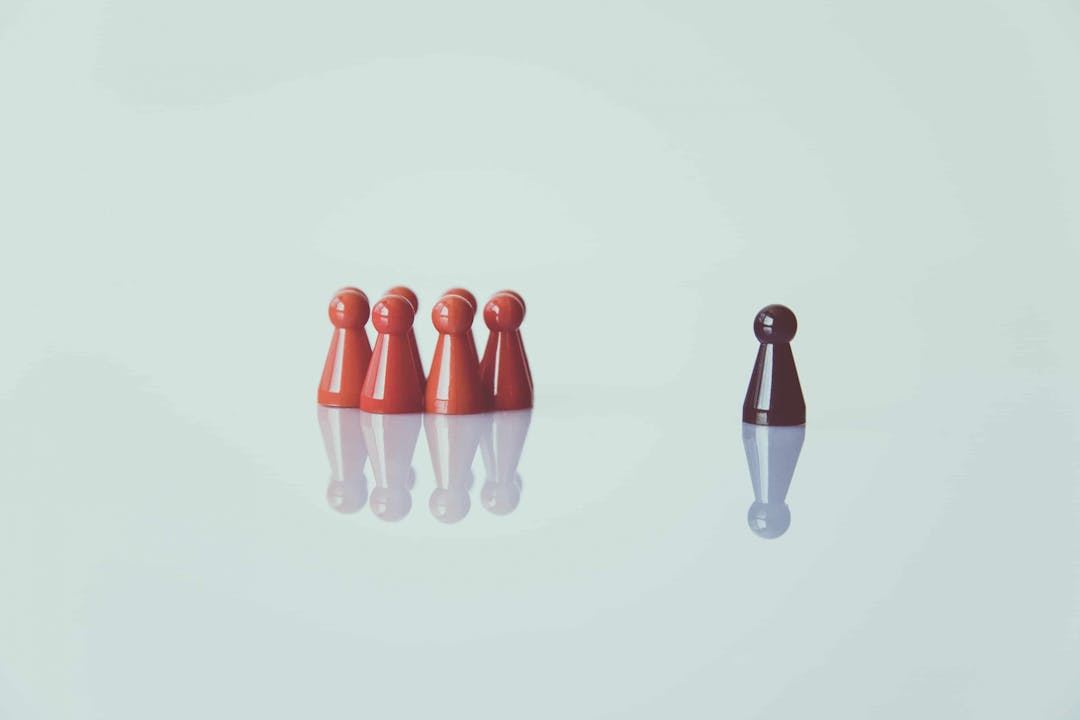Why Quarantine Distorts Our Sense of Time
There is nothing like a pandemic and ensuing quarantine to throw a wrench into our routines and remind us of the many things we used to take for granted. Who ever thought that we would pine for a mask-free trip to the grocery store or a lazy afternoon at the cafe? But perhaps the most jarring change since the emergence of COVID has been the fundamental shift in our experience of time.
Something odd happens to time when the slices of the day—the commute, the office, lunch with the coworkers—bleed into one another, with no change of scene to mark one moment from the next. For many, time begins to distort. It becomes difficult to recall which day of the week it is. Hours seem to snail by, but weeks disappear in the blink of an eye. It is during these experiences—when time drags or dashes—that even the least philosophically minded of us briefly ponder its nature. We wonder what exactly this thing we call “time” is, and why our experience of it seems to be in constant flux.
It turns out that thinkers have been posing these questions for millennia, and they are not exactly a piece of cake to answer. In fact, even the mere conceptualization of time presents us with its own set of challenges.
Behavioral Science, Democratized
We make 35,000 decisions each day, often in environments that aren’t conducive to making sound choices.
At TDL, we work with organizations in the public and private sectors—from new startups, to governments, to established players like the Gates Foundation—to debias decision-making and create better outcomes for everyone.
Time, space, and culture
Close your eyes and try to imagine time. You’ve likely constructed some sort of spatial reference point in your mind’s eye, such as a timeline with yesterday on one end, the present somewhere in the middle, and the future on the other end. If you write from right to left (e.g., Hebrew or Arabic) the future most likely sits somewhere to the left. If you write from left to right however (e.g., English), the timeline will reverse direction, and the future will hover somewhere off to the right. But things get stranger still. In English, we speak of “moving a meeting forward” or “looking back in time,” and consequently see time as flowing across a horizontal timeline. People who speak Mandarin, however, often imagine time as flowing vertically, and speak of earlier events as “up” and later events as “down.”1 There are even some cultures, such as the Aymara people of South America, who picture the future as behind them and the past as ahead.2 This conception of time is so foreign to an American that it seems almost nonsensical (just imagine if someone exclaimed “I’m looking backward to my birthday tomorrow!”).
I hope I’ve convinced you so far that not only is it impossible to conceptualize time without referencing space, but that the chosen spatial reference point varies considerably by culture. Of course this does not discount the possibility of some sort of universal psychology of time underlying our mental and linguistic representations. It is quite likely that all humans have evolved similar cognitive strategies for keeping track of time. Therefore, we can assume that, just as we all fall prey to the same optical illusions, we will reliably experience the same temporal illusions. Take the example of Viktor Frankl’s experience in Nazi concentration camps: “In camp, a small time unit, a day, for example, filled with hourly tortures and fatigue, appeared endless. A larger time unit, perhaps a week, seemed to pass very quickly. My comrades agreed when I said that in camp a day lasted longer than a week.”3
A day lasting longer than a week! It is tempting to chalk Frankl’s statement up to a poetic turn of phrase, or to the particularly miserable conditions he was caught in, but I think we’ve all experienced similar paradoxical perceptions of time. We’ve all looked back on a particularly mundane week with the sense that it slipped by in the blink of an eye, even though each day had felt interminable at the time.
To resolve this paradox, it is useful to think about colonoscopies.
Yes: colonoscopies. In a landmark study, patients were asked to rate their moment-to-moment pain throughout a colonoscopy procedure (general anesthesia was not used).4 Afterwards, they rated the total pain of the procedure. One of the surprising findings was that the patients largely ignored the length of the procedure in their retrospective evaluations. Instead, they seemed to be averaging their levels of pain at the most intense moment and at the final moment, a phenomenon known as the peak-end rule. This led to a flurry of perplexing results. For example, it was found that adding a few minutes of less severe pain to the end of the experience could actually improve the retrospective evaluation (because the procedure’s less painful ending brought down the peak-end average).
Now, imagine you are the patient, and towards the end of the procedure the doctor gives you a simple choice: would you rather the procedure be terminated immediately or an additional few minutes of moderate, but less severe pain be tacked on? You would probably promptly question the doctor’s credentials, and wonder how he had managed to pass medical school. This, however, is simply the naive response of your experiencing-self—the self that answers the question, “How does it feel right now?”5
Now pretend the doctor never presented you with this dilemma, but instead went right ahead and administered the final few minutes of less severe pain. Your remembering-self—the self that answers the question, “How was it as a whole?”—would actually be more satisfied with this outcome. And since it is your remembering-self that you consult when making future decisions, the latter scenario would leave you more likely to partake in future, potentially life-saving, colonoscopies. You were right that the choice the doctor presented to you was ludicrous, but not for the reason you thought. It should have been a no-brainer for the doctor to go ahead and extend the procedure. The problem was that you were answering with your experiencing-self rather than your remembering-self.
Time from the vantage point of the two selves
Attention and emotion are the most pivotal players in the experiencing-self’s perception of time. Just like most things in life, we only notice the passing of time when we pay attention to it. Time flies when we are having fun precisely because we are zeroed in on our fun rather than the passage of time. The flow experience illustrates this well.6 Flow is one of the most rewarding mental states, in which we become merged with an activity and temporarily lose our sense of self and time. It can be experienced by athletes, musicians, gamers, and many more. One of the hallmarks of flow—and probably the reason it is so enjoyable—is that our attention is fully absorbed by the activity at hand. Only when we emerge from a flow state, and our attention is free to be deployed elsewhere, do we realize that a large chunk of time has passed. On the flip side, when we are constantly checking the clock or our smartphones, waiting in anticipation or trepidation, our attention refuses to be captured by anything but time. Unfortunately for us, this means that the more we will time to pass, the slower time crawls.
Things get even more complicated when emotion is factored in. Of course, emotion can steer our attention towards time or divert it elsewhere. But its role seems to be much more elaborate than that of mere attention-guiding. The unique, and potentially debilitating effects of emotion on time-perception are most apparent in traumatic experiences. For example, survivors of motor vehicle accidents report the speeding up or slowing down of time more frequently than any other symptom.7 It is safe to assume that time did not slow down because the survivors were examining their watches while their cars somersaulted down the freeway. Rather, the sheer shock and terror seem to have warped their experience of the world in some fundamental way.
Unsurprisingly, different emotions can distort time-perception in opposite directions. In one study of first-time skydivers aptly titled How Time Flies, those who reported overwhelming dread leading up to the dive overestimated its duration, whereas those who reported less dread and more excitement actually underestimated its duration.8 Numerous theories attempt to unravel the tempestuous relationship between time, emotion, and attention, but for our purposes it is enough to know that it is these factors that most reliably skew the experiencing-self’s perception of time.
If we saw the world solely from the experiencing-self’s point of view, our perception of time would be distorted, but it would not be paradoxical. It is the conflicting reports proffered by the experiencing- and remembering-selves that give rise to these contradictions.
To illustrate, imagine that you are the novice sky-diver who vastly overestimated the duration of your first dive. Since you faced your fears and successfully evaded death the first time around, you decide to take a follow up vacation to Switzerland—one in which you’ll test fate on a daily basis with a week of parachuting off the tallest peaks of the Alps. You get permission from your boss, hop on the flight to Geneva, and, once again, manage to make it through with your bones intact. After that thrill-ride of a week, you return to your routine as an accountant, and slowly you acclimate to the dull rhythm of normal, adult life.
The next weekend your friend asks you how your week was, and you recount your experiences plunging down a cliff-face like a bald eagle and floating serenely into the gentle hills dotted with farm animals and quaint, pastel villages. Your friend is impressed by your stories and newfound passion. It is only on the way back from the restaurant that, slightly embarrassed, you remember that the vacation had in fact taken place two weeks ago. This past week has been a humdrum affair of burnt Starbucks coffee, typing-induced carpal tunnel, and much-cherished bathroom breaks. You realize that, because each day in Switzerland soared by in exhilaration while each day at work inched by in exasperation, you feel like your week in Switzerland lasted a lifetime, and you hardly remember that your subsequent workweek even took place.
While novelty and change fuel the remembering-self, routine and repetitiveness elude its grasp.9 Your memory latches on to the hundreds of new and exciting experiences in the Swiss Alps, so psychological time expands, and a week feels like months. But when it comes to your bland workweek, memory struggles to find a foothold, and psychological time contracts.
We now have all the ingredients to explain Frankl’s bewildering statement that a day felt longer than a week in the concentration camps. The hourly tortures and humiliations, and the constant fatigue and starvation, were all endured by Frankl’s experiencing-self. Those moments must have felt as if they would never end. Anxiety, sadness, terror, and mortification must have been constant companions. A day, then, felt far longer than 24 hours. Frankl’s remembering-self, however, was the one that evaluated a week in the camps. There were few novel or exciting moments for Frankl’s memory to cling to, rather each day blended into the next, a uniform mass of routine suffering.
Only the good die young
By now it should be clear that attention, emotion, and memory all distort our perception of time. The natural next question is, how can we use this knowledge to our advantage? How can we extend our psychological lives as long as possible—or is that even a goal we should strive for? Is it possible to live a long life but die young, or the converse, live a short life but die old?
In the brilliant book Moonwalking with Einstein, Joshua Foer puts it like this: “Monotony collapses time; novelty unfolds it. You can exercise daily, and eat healthily and live a long life, while experiencing a short one. If you spend your life sitting in a cubicle and passing papers, one day is bound to blend unmemorably into the next—and disappear. That’s why it’s important to change routines regularly, and take vacations to exotic locales, and have as many new experiences as possible that can serve to anchor our memories. Creating new memories stretches out psychological time, and lengthens our perception of our lives.”10
Foer makes a firm case that we can and should schedule our lives in a way that maximizes psychological time. In short, this entails slicing time into smaller segments and accumulating new and memorable experiences.
Before COVID, Foer’s advice would have seemed fairly straightforward to apply. Even if our days had been routine and unmemorable, we could have at least counted on cafes, restaurants, bars, in-person hangouts, and trips to Paris to break up the drudgery. Under quarantine however, any attempt at extending psychological time can seem futile.
Of course, this isn’t really the case—we just have to get a bit more creative. We can still change up our routines, even if the options are more limited. Many have already found new avenues to explore: in the UK, sales of board games and jigsaw puzzled rose 240% during the first official week of lockdown.11 There is always room to learn a new skill, meet a new person, discover a new artist, or glimpse a new spectacle. And even if a mask must be worn, a change of scene is always around the block.
While Foer’s advice has its merit, especially when it comes to breaking through a rut, I am not so convinced that novel experience-collecting should be our overarching goal. Routine is valuable and psychologically healthy and over time you can easily imagine novelty-chasing losing its, well, novelty. In my next article, I’ll investigate these questions further and try to find a middle ground.
References
1. Boroditsky, L. (2001). Does Language Shape Thought?: Mandarin and English Speakers’ Conceptions of Time. Cognitive Psychology, 43(1), 1–22.
2. Núñez, R. E., & Sweetser, E. (2006). With the future behind them: Convergent evidence from Aymara language and gesture in the crosslinguistic comparison of spatial construals of time. Cognitive Science, 30(3), 401–450.
3. Frankl, V. E. (2006). Man’s search for meaning: An introduction to logotherapy. Boston, MA: Beacon Press.
4. Redelmeier, D. A., & Kahneman, D. (1996). Patients’ memories of painful medical treatments: real-time and retrospective evaluations of two minimally invasive procedures. Pain, 66(1), 3–8.
5. Kahneman, D., & Riis, J. (2005). Living, and thinking about it : two perspectives on life. Thinking, 285–304.
6. Csikszentmihalyi, M. (2009). Flow: The psychology of optimal experience. New York: Harper Row.
7. Ursano, R. J., Fullerton, C. S., Epstein, R. S., Crowley, B., Vance, K., Kao, T. C., & Baum, A. (1999). Peritraumatic dissociation and posttraumatic stress disorder following motor vehicle accidents. American Journal of Psychiatry, 156(11)
8. Campbell, L. A., & Bryant, R. A. (2007). How time flies: A study of novice skydivers. Behaviour Research and Therapy, 45(6), 1389–1392.
9. Avni-Babad, D., & Ritov, I. (2003). Routine and the Perception of Time. Journal of Experimental Psychology: General, 132(4), 543–550.
10. Foer, J. (2011). Moonwalking with Einstein: The art and science of remembering everything. New York: Penguin Books.
11. Sales of board games and jigsaws soar during coronavirus lockdown. (2020, April 01). The Guardian. Retrieved October 20, 2020, from https://www.theguardian.com/business/2020/apr/01/sales-of-board-games-and-jigsaws-soar-during-coronavirus-lockdown
About the Author
Jeremy Koloski
Jeremy is fascinated by the exploration of the human mind and human behavior. At the core of his thought are the big philosophical questions—why are we here, how did we get here, where are we going, and what is consciousness? He sees the arts and sciences as distinct, yet equally valuable tools with which to pick apart these fundamental, yet often intractable, mysteries. His software engineering background provided him with insight into the computational element of human behavior. To bridge the gap between the cold, packaged world of coding and the messy, shifting landscape of human behavior, he moved to London and completed a Master’s of Science in behavioral economics. Influenced by positive psychology, psychotherapy, nudge theory, and the biases and heuristics model, Jeremy is motivated to translate scientific insights to the public in order to help people help themselves. His master’s thesis attempted to uncover some of the factors leading people to squander their leisure time by participating in activities that they find meaningless and unproductive rather than restorative and future-oriented. His overarching goal is to shed light on the human condition, and in doing so, relieve pointless human suffering while maximizing human flourishing. In his free time, Jeremy composes music, writes short stories, and dabbles in wildlife photography.





